
Guest post by Ali Luke.
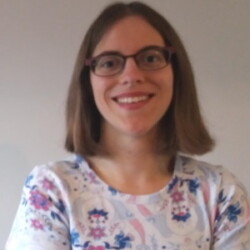 Ali Luke is a freelance writer and novelist who blogs about making the most of your writing time at Aliventures. For her best tips on making time to write, sign up for her email newsletter: you’ll receive a free copy of her mini ebook Time to Write: How to Fit More Writing Into Your Busy Life, Right Now.
Ali Luke is a freelance writer and novelist who blogs about making the most of your writing time at Aliventures. For her best tips on making time to write, sign up for her email newsletter: you’ll receive a free copy of her mini ebook Time to Write: How to Fit More Writing Into Your Busy Life, Right Now.
Pacing in fiction is how quickly—or slowly—the story progresses. The right pace for a story depends on its genre. If you’re reading a thriller, you’ll expect a fast-paced read with lots of action; if you’re reading a historical novel or epic fantasy, you might enjoy a slower pace with lots of emphasis on the world of the story.
It’s tough to get pacing spot-on when you’re drafting. It might take you years to write a book that takes just hours for someone to read. What feels “slow” to you as you write might actually go by pretty quickly on the page. Or, you may find that you repeat yourself, going over the same narrative ground multiple times, because you barely remembered what you wrote six months ago.
So, don’t worry about your pacing as you draft. Instead, address it in the redrafts—ideally, with the help of beta readers, but even simply reading over your full manuscript yourself can help you spot areas where the pace feels off.
Here’s what to look for when redrafting your work. (more…)

Guest post by Iris Marsh.
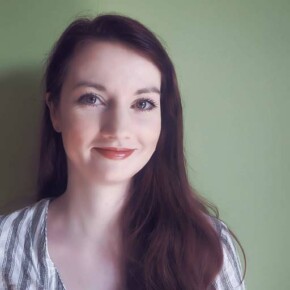 In this guest post, indy writer and editor Iris Marsh describes how reading novels comparable to your own project can help you hit genre conventions and scenes the audience expects.
In this guest post, indy writer and editor Iris Marsh describes how reading novels comparable to your own project can help you hit genre conventions and scenes the audience expects.
Iris is an editor for indie authors and the author of the YA urban fantasy novel Illuminated. Iris feels everyone has a story to tell, and she loves to help other authors hone their story so they can share it with the world. To her, building the confidence of authors is key. That way, they don’t just have a better story, but they also feel more confident sharing it. Check out her website for tips and her free self-editing course.
You’ve written your story, yet you feel that there are several moments missing. The middle seems rushed or too slow. Or perhaps you’re unsure whether the climax packs the punch you were looking for.
You do know this: the story needs some editing.
But how do you know what’s missing? How can you identify what you need to improve?
Reading a few books in your genre can give you the answers you seek. By comparing them, you’ll find out what elements they have in common and how you can apply these to your own story.
Doing this is a great practice either before you start writing (to help you plot your story) or after you’ve written your first draft (to find out if your story hits the right moments).
In this article, we’ll discuss which books you should pick to read, what you should pay attention to when reading, how to compare what you’ve read, and how you can use this information to improve your story. (more…)

Guestpost by Savannah Jackson of Jericho Writers.
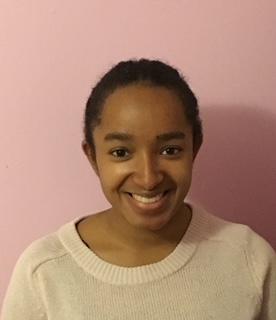 Savannah Jackson is a Digital Content Assistant at Jericho Writers. She has a BA in English Literature and Creative Writing from the University of Warwick. In her free time, she writes poetry, practices yoga, and reads voraciously.
Savannah Jackson is a Digital Content Assistant at Jericho Writers. She has a BA in English Literature and Creative Writing from the University of Warwick. In her free time, she writes poetry, practices yoga, and reads voraciously.
Writing courses have become increasingly popular over recent years, as they are incredibly valuable resources. They offer guidance from experienced tutors who are often writers themselves; provide peer interaction, feedback, and a sense of community; boost your creativity; and enable you to learn about different approaches and techniques.
There are so many different writing courses available that it can be hard to find the one that’s right for you. In this post, I’ll outline the key things to consider when choosing a writing course, and hopefully, that’ll make the decision a little easier.
What to Look Out for in a Writing Course
There are lots of aspects to consider when finding the right writing course for you. Think about what you want to take away from your course experience and use that to help guide your decision. For instance, are you looking for a creative writing course or do you want to learn how to market yourself as an author?
Here are some of the key factors to contemplate when choosing a writing course. (more…)
Blogposts and articles featuring Beemgee:
29.04.2023 | Leipzig Book Fair | The Author Conference
2023 | gamelearn | 10 storytelling tools
21.01.2022 | BPW | Mit Geschichten zur Erfolgsgeschichte: Die BEEMGEE-Gründerstory
14.01.2022 | Novlr | The Best Plotting Tools for Writers and Novels
(more…)
“I am contemplating my 12th novel. I’m hopeful it will be my best because of the marvellous tools inside Beemgee.”
“Such great service. I’m enjoying exploring Beemgee. I love the ?. It provides so much valuable information, it’s like taking a graduate level class. You provide a great deal of helpful story development advice. I think I’m addicted.”
“Thanks again for all the work you invested to produce such a great story development tool.”
“A good tool to make a pantser plot!”
“I think your site is brilliant.”
“This one is outlining way better than any other story I’ve outlined. I’m going to assume this is in part due to using Beemgee. Best tool I’ve ever used.”
“Thank you for this awesome platform. I really enjoy working with it. … I really like beemgee because it makes writing complex stories a hell of a lot easier.”
“Your resource is amazing. What an amazing tool. I’m … now very much a fan of this new software. Although I write using Scrivener, I can see how I can do all my planning through Beemgee, and then slide everything into Scrivener.”
(more…)
Beemgee helps authors develop their narrative material. The founder explains the benefits to authors and publishers.
By Tom Tivnan.
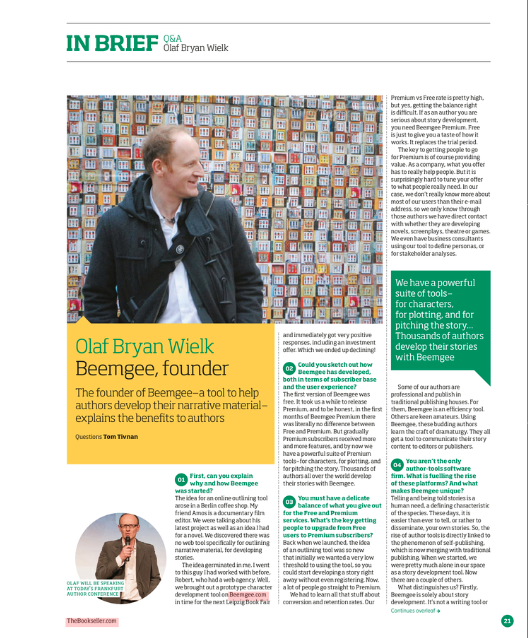 (more…)
(more…)
Why a Picture Book Manuscript Always Benefits From Systematic Planning
by Vincent Teetsov
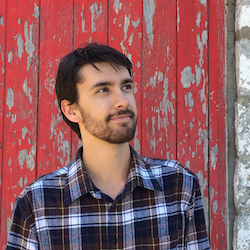
Residing at the crossroads between songwriting, picture books, and non-fiction with a cultural focus, Vincent Teetsov is a communicator with the ambitious goal of inspiring the world to innovate and live meaningfully through multimedia creations. Since 2013, he has released several music albums and books, relating to topics of history, language, and the passage of creativity through time. This has been particularly impacted by his time living across the United States, Italy, and the UK. Since 2015, he has collaborated with illustrator Laani Heinar in creating the children’s stories, comics, and songs for Pumpkin and Stretch.
You can follow Vincent’s latest activity on Instagram here: www.instagram.com/pumpkinandstretch/ and here: www.instagram.com/vincentteetsov/.
Squeezing 90,000 Words Into 1,000
Admittedly, there is less text in a picture book than you will find in a novel. In a picture book, printing specifications typically dictate that there should be 32 pages. This even number allows for the story’s pages to be folded up neatly into a single stack, called the ‘signature’. After printing, the signature is then cut and bound together. Novels have less specific requirements.
With these differences in length, sometimes outsiders to the process of writing will assume that creating a picture book is easier. This is compounded by the fact that most picture books are written for children and use simpler language. Actually, it’s even harder to get this language right than when writing for adults. (more…)
Antje Tresp-Welte is the winner of the Your Perfect Plot challenge set by BoD and Beemgee.
In her guest blog post, she gives frank insight into her writing process and her experiences with Beemgee.
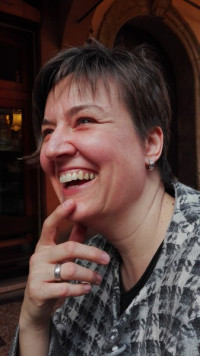 Short stories were child’s play
Short stories were child’s play
When something intrigues me, I spin a story out of it. Until a few years ago I wrote mostly fairy tales, short stories for adults, poetry and stories for younger children, some of which were published in magazines. My story about a bad-tempered spectacled snake was published as a little book, “Charlotte and the Blue Lurker”. For all these stories I only sketched a few thoughts as planning and then wrote them down relatively quickly.
By now, book projects fascinate me too. Currently they are crime novels and fantasy for children from 8 or 10 years.
Long takes longer …
During a holiday at the North Sea I had the idea for my first crime novel. In it, the protagonist, an eleven-year-old very imaginative boy with a penchant for drawing, not only saves his grandma’s tea room from demolition, but is also involved in a mysterious story about a pirate who died long ago. I developed the original idea into a plot at a seminar for authors. I found the topic so great that I couldn’t wait to start writing it. Beforehand, I made notes on the individual characters and considered important cornerstones of the plot with the help of the hero’s journey. I started off with a great momentum and was soon able to read the first chapters to my son. Unfortunately his comment was, “Mama, that is much too long!”
… not to be longwinded
My two test readers came to a similar conclusion and I too had noticed that it somehow “grated”. I wasn’t really getting to the point. Was it due to my preliminary planning? Was it not detailed enough? I dived into the text, shortened passages, removed individual characters and worked out others more precisely. This changed entire storylines. At the same time my story gained more (narrative) speed and I found the tone for the language. (more…)
The first novel to state in black and white that the author worked with Beemgee.
This is certainly not the first book for which our author tool was used. But it is the first time that an author explicitly mentions Beemgee in her acknowledgements. Thank you, Katharina, we’re glad you use Beemgee during your story development!
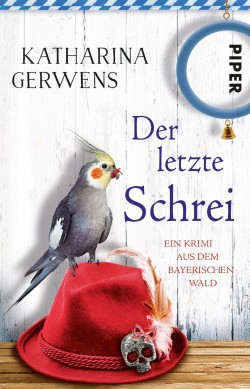 All The Rage – Der letzte Schrei
All The Rage – Der letzte Schrei
published by the renowned Piper Verlag (Bonnier group)
Susanne Pfeiffer has recently joined the Beemgee team. She interviewed her friend Katharina Gerwens for us.
Beemgee: Congratulations, Katharina! It’s always great when you can hold your own book in your hands … How many novels have you published so far?
Katharina: This is my eleventh regional thriller published by Piper. Soon I’ll make it a dozen ….
Beemgee: I think ALL THE RAGE is a really good thriller title! You like double meanings. – But I want to get at something completely different: You know my foible to start every book by reading the acknowledgements – and here it says, last but not least, you worked on the plot with BEEMGEE! How so?
Katharina: Because for me any support I get is worth mentioning! I have asked so many people in my field about all sorts of things, and in these conversations new aspects have always emerged – the least I can so is say thank you! ALL THE RAGE is, by the way, the first book in which I worked with Beemgee – and it was a great help to me. (more…)

 Ali Luke is a freelance writer and novelist who blogs about making the most of your writing time at Aliventures. For her best tips on making time to write, sign up for her email newsletter: you’ll receive a free copy of her mini ebook Time to Write: How to Fit More Writing Into Your Busy Life, Right Now.
Ali Luke is a freelance writer and novelist who blogs about making the most of your writing time at Aliventures. For her best tips on making time to write, sign up for her email newsletter: you’ll receive a free copy of her mini ebook Time to Write: How to Fit More Writing Into Your Busy Life, Right Now.






